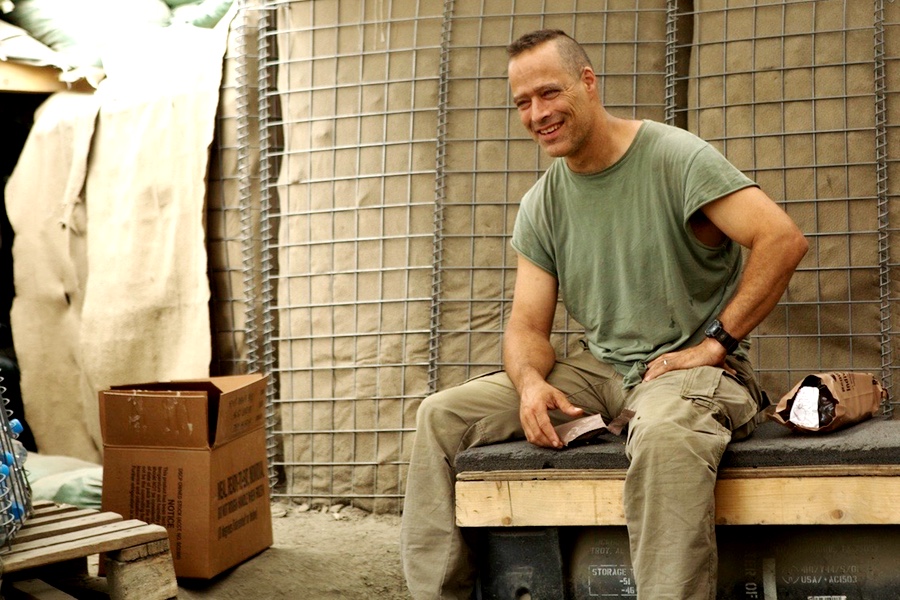
A couple years ago I met best-selling author Sebastian Junger while we were both randomly on the set of the TV show The Affair.
He was guest-starring as himself (a war journalist, Academy Award-nominated documentary filmmaker, special correspondent for ABC news, Peabody Award recipient, and overall super masculine and thoughtful guy). I had been hired as a yoga consultant for some scenes in a retreat center. Part of my job was to make Junger–who favors running and boxing for fitness–look like a seasoned yogi.
During lunch we wound up in a conversation about trauma. As a therapeutic yoga teacher, I specialize in trauma resolution. Much of Junger’s career focuses on post-traumatic stress disorder (PTSD) in soldiers and war veterans. So we had plenty to discuss.
At that time, Junger was also experiencing increasing issues with his heart. After a lifetime of robust health, his heart was on the fritz with a quivering, irregular heartbeat. He had atrial fibrillation (also called AFib) and was in the process of deciding whether he would get a procedure called a catheter ablation to fix the arrhythmia. In his early 50’s, he was, for the first time, confronted with the vulnerability of his physical form.
As I got to know Junger better, I learned that he had also recently suffered three painful losses.

“I went through a tough point, a tough few years,” he disclosed. “I was in a lot of combat as a journalist, then my colleague I was out there with was killed, my father died, and my marriage ended all in a couple years. After that I noticed when I went running I would get incredibly exhausted. I couldn’t even finish my run. I couldn’t even run three miles. I didn’t recognize my body–it didn’t work. Something was very, very wrong.”
Which brings us to the topic of this post: heartbreak.
With a series of losses like this, one can’t help but wonder, can emotional pain cause physical breakdown? Can a “broken heart” lead to the breakdown of the heart?
Junger was kind enough to sit down with me for a personal conversation on the topic of heartbreak. What he shared sort of blew my mind, as he can track the beginnings of the heart issue way back to his teenage emotional coping mechanisms. Read on to hear Junger’s path through healing his heart, and how this journey has transformed what he deems most important in life.
Becoming a Teenage Athlete to Combat an Emotionally Distant Home
“I grew up in a family that wasn’t very close–emotionally close,” shared Junger. “One of the things I did with the sort of vacuum that leaves in a person is I became a very intense athlete–it was a kind of self-soothing process. I was a distance runner. I ran 100 miles a week. I was quite good. I won a lot of races and it gave me a sense of satisfaction. It did all the things that make you able to not feel how you’re feeling.
“But the irony is that running 100 miles a week, when you’re that young, for as intensely and as long as I did, changes your heart. My heart got enlarged, as a lot of athletes’ are, and it’s correlated with atrial fibrillation. So people who are really intense athletes when they are really young have a higher instance of AFib–which is arrhythmia.
“All I knew [at that time] was I had a really low pulse, it was in the high 40s, and if I sat and concentrated I could think it down to 40. My buddy and I would have competitions–we’d have heart-rate monitors on, we’d sit staring at each other, and see who could think their heart lower.”
I stopped Junger here. Wait a minute, you and your friend created a heart regulation practice for fun? I had to know what his teenage heart-slowing strategy was…
“I’d just try to have everything sink through the floor: my breath, heartbeat, thoughts… everything. I just went into a kind of hibernation state and it worked! At least to the tune of ten heartbeats a minute.”
So Junger had already been living with arrhythmia from his lifetime of intense athleticism. But his enlarged heart wasn’t an issue that interfered with daily life until after he was hit with that series of emotional losses.
How it Feels to Only Get “Half a Heart Full of Blood”
Were you short of breath? I asked Junger about his struggles to run just a few miles after the AFib worsened later in life.
“No, I wasn’t short of breath. My heart was malfunctioning. I had plenty of oxygen, but unless the heart is pumping blood through the system you can’t use the oxygen that’s coming into the lungs. Atrial fibrillation is where the heart is beating irregularly and basically it contracts before it’s full of blood. So every time it beats, it’s only sending half a heart full of blood out.
“Your heart is never filling with blood fully and emptying itself–it’s just always kind of half full–you’re not moving a lot of blood so your blood pressure goes down. It’s a terrible, terrible feeling. Basically it’s completely incapacitating but there’s nothing really wrong with you. It’s not heart disease.”
Junger wasn’t just trying to run with AFib, he was also continuing his other favorite sport, boxing.
“I was sparring with AFib. And I’d go into full-blown episodes where my heartbeat was 200 BPM, so my heart was fluttering and I could barely stand, I could barely see–which doesn’t help if you’re sparring someone. I didn’t know what was going on.”
Junger was finally diagnosed and underwent a procedure called a cardiac ablation. This is a nonsurgical procedure that brings a catheter into the heart to cauterize the tissues with overactive electrical impulses that are causing the arrhythmia.
“There’s a piece of tissue in your atrium that’s misfiring,” described Junger, “and they burn around it which creates scar tissue and the electrical impulses can’t jump the scar tissue–it’s dead.

“And that completely cured me,” he said of the procedure. “But my point is, I’m not convinced… I mean, my father is a physicist and I believe in material physical explanations for things, right? But I’m not convinced that the emotional troubles I went through weren’t what finally precipitated this breakdown of my heart. I can’t prove that it was, but of course it affected me.”
The Bonds That Keep Our Hearts Healthy
The intersection between emotional and physical health is a point of fascination for many (like myself) in body-based wellness professions. Clients often come to us with symptoms that “coincidentally” began just after getting laid off, or having a terrible argument with their spouse, or losing a loved one.
According the the book A General Theory of Love by Thomas Lewis, M.D. (and others) understanding the physiology of attachment bonds can lend insight into this topic.
“There is ample research that suggests that our mammalian bonds are a fundamental aspect of our physical health and hormonal regulation,” says Lewis. “Attachment bonds are a reflection of the limbic architecture mammals share. Short separations provoke an acute response known as protest, while prolonged separations yield the physiologic state of despair.” (Lewis et al., 76)
In the state of protest body temperature and heart rate rise, along with hormones related to alertness, vigilance and action. The spike in cortisol (in some mammals this stress hormone rises sixfold after half an hour of separation) “tells us that relationship rupture is a severe bodily strain.”
Furthermore, continues Lewis, “A number of somatic parameters go haywire in despair. Because separation deranges the body, losing relationships can cause physical illness… cardiovascular function, hormone levels, and immune processes are disturbed in adults subjected to prolonged separation. And so medical illness or death often follows the end of a marriage or the loss of a spouse.” (Lewis et al., 80)
These bonds we share that help keep us stable and healthy have been dubbed “limbic regulation.”
Self-Soothing With Booze and Cigarettes Works… Until It Doesn’t
I asked Junger if those severed attachment bonds with his father, longtime work partner and wife might have compromised his nervous system and thwarted his heart’s ability to manage its own symptoms.
“Absolutely,” he replied. “I also was self-soothing with cigarettes and alcohol quite a lot. I mean, if your best friend gets killed in combat and your marriage is ending–if that’s not a time to drink and smoke, I don’t know what is. And it made me feel good. I did it because it worked. It got me through a tough time, but then I got to a point where I had to stop and I did. Now I don’t drink at all, and I really enjoy not drinking.”
Letting go of self-destructive coping mechanisms isn’t so easy for many people who have been through painful losses. How did you quit drinking? I asked Junger.
“I don’t think I was ever an alcoholic, but I got to the point where I could drink 10 or 15 whiskeys and walk home. I mean, I could function, and that to me was a bad sign. I was just in a lot of pain and that’s what I was doing with it. And I’m a really happy drunk. I have a few drinks and I really enjoy myself.
“But when I first saw a doctor about my heart he said, ‘you know, alcohol can sometimes trigger these AFib episodes.’ I wanted to avoid having an ablation–it seemed scary to have them up inside your heart with cattle prods or whatever they are. So I tried not drinking and it didn’t do anything.
“It took about a month to realize [not drinking] wasn’t going to save me from the procedure, but by the end of that month I felt so different and good. And I realized this thing–when you’re young drinking is an act of rebellion, you’re throwing off the conventions of society. It feels so radical and empowering.
“Then I realized that as I got older, the radical revolutionary act is to be clear-minded. And in some ways society doesn’t want people to be clear-minded because if they were clear-minded, they wouldn’t put up with this shit. They wouldn’t put up with iPhones and televisions and commercials… it’s toxic.
“So I feel like there’s a de-facto sort of conspiracy to keep people clouded in their thinking, through entertainment, social media and alcohol. So I got to the point where I was like, no, no no, not drinking is my act of rebellion. Like, I’m not going to go quietly into the good night of commercial society. I’m going to be clear-minded.”
I’m not going to lie. There was a fist-bump at this moment in our conversation.
So wait, the procedure reset your heart, right? I asked.
“Yeah, after a few months, all of a sudden I wasn’t going into AFib, my heart was beating normally.”
When Our Defenses Become Our Vulnerabilities
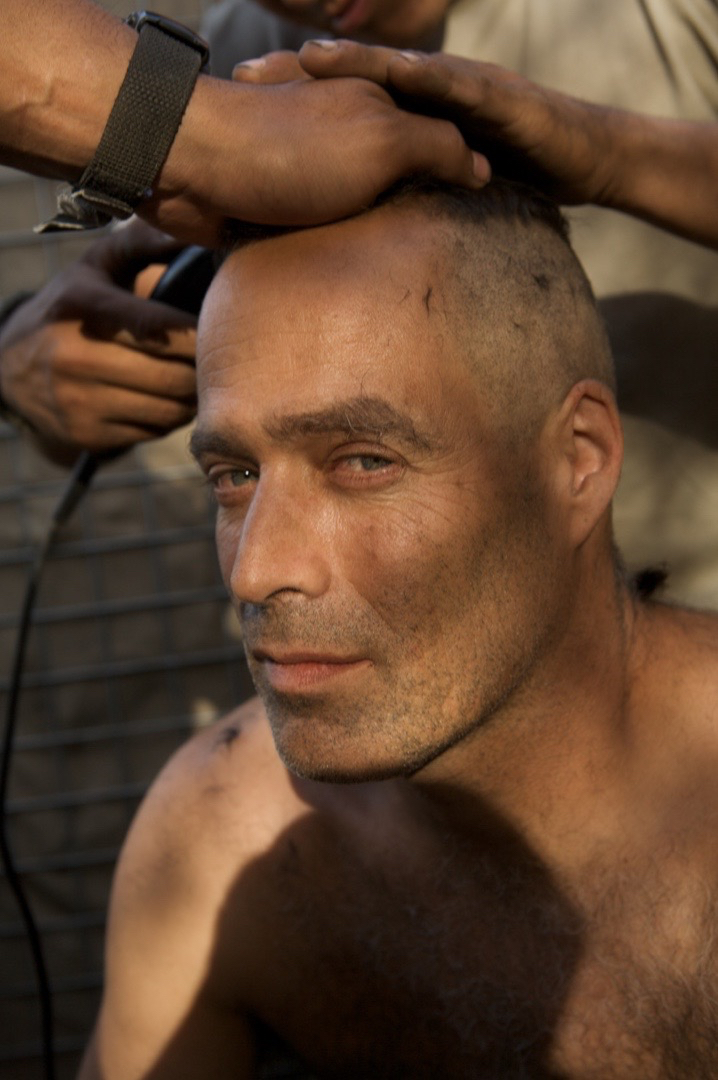
It’s pretty common knowledge that those who are physically strong and athletic tend to fare better during recovery from medical procedures. But when I asked Junger if he felt this was true in his case, he pointed back to those early years as a young athlete as being the origin of the problem.
“With this, the irony for me is that it’s because I was such a strong athlete that my heart was malfunctioning. It’s associated with strong hearts. Like physically, hearts that are overdeveloped because you’re an athlete and you can move so much blood. I was running very fast, very far, starting at age 15.
“So to me there’s this incredible irony and something to be learned…it’s possible that which makes us feel the most defended actually makes us the least safe.”
Junger went on to disclose that the process taught him that he needed to gain a sense of emotional safety from something other than physical power. How did you find that emotional security? I asked him.
“I think a lot of people feel that they have to be extraordinary in order to deserve ordinary things… so in order to deserve an ordinary rich connection with another person, you have to, like, be extraordinary in some way to impress them.”
This was, apparently, how Junger felt as a teenager when he started running. “Girls when I was a teenager left me pretty bewildered. One thing I tried to do with my bewilderment was [to decide] if I run a fast enough mile time, I will be impressive enough so that girls will talk to me.
“Then you finally realize that girls don’t care about your mile time. What they want is to really connect with somebody. And that comes from ordinariness–from being open and ordinary and normal with another person.
“I think people realize that at different points in their life. I didn’t realize it until my 50s: Impressing people is not a path to closeness, it’s the opposite, but it takes a long time to figure that out. What I always had was this incredible reservoir of athletic strength and when I lost that… I finally sort of joined the human race.”
During the months leading up to his heart procedure, Junger was finishing his most recent book, Tribe: On Homecoming and Belonging. Tribe highlights the value of of building and maintaining close communal ties as the “key to our psychological survival.”
He also recently fathered his first child, a daughter. I asked if the shift in recent years of his life toward community and fatherhood might have been part of his healing process.
“Yeah, I mean humans are social primates and we get our physical safety, and as a result our emotional safety, from the proximity of others that we care about. End of sentence.
“I’m 57 now and I’m no longer particularly interested in myself. I’m interested in my family. I’m no longer the focus of my energy. It’s going outwards rather than inwards. And that feels incredibly good.”
On Listening to the Heart
My last question to Junger was admittedly a bit yoga-centric. After all you’ve been through, do you ever purposely listen to your heart for insight or guidance?
“Once in a while, I’ll have a little fluttering of pre-ventricular contractions–PVCs. They’re like a skipped heartbeat… I’ll have an afternoon of a little bit of those. I’ve never had them before in my life, and that either creates a sense of anxiety, or if I’m anxious it makes that [the PVCs] happen. And I don’t know which direction it goes in, but regardless when that happens it makes me think.
“I actually have to, like, collect myself. Like either my heart’s not working quite right and it’s affecting how I am, or I’m not quite right and it’s affecting my heart, but either way, I just have to stop things for a moment, or for a day, and get into a better place.”
This last part of our conversation was my favorite.
“When you become aware of your heartbeat, it can lead to a sort of neuroticism about mortality. And no one wants that. But, it’s a fucking miracle that we’re alive and that this thing beats I don’t know how many trillions of times in our lifetime, it’s a goddamn miracle, right?”
Yes. It certainly is.
“And if you can be aware enough to appreciate the miracle of that, without crossing the border into a kind of neuroticism about like, I’m gonna die any moment, if you can do that, you’re really participating in the act of being alive. You don’t want being alive to go by without thinking about it… and awareness of your heart can lead you to that appreciation.”
For more information, on Sebastian Junger including his books, films, media and speaking engagements visit sebastianjunger.com
Feature image by Tim Hetherington
Works cited:
Lewis M.D., Thomas, and Amini, M.D., Fari, and Lannon, M.D., Richard (2000). A General Theory of Love. [New York]: Random House.
Junger, S. (2016). Tribe: [on homecoming and belonging]. [New York]: HarperCollins Publishers.
Related Article: Wounded Warrior’s ‘Project Odyssey’ Gets Their Roll on for Recovery
Learn more about our Therapy Ball Products and Programs
Interested in video and blog content targeted to your interests?


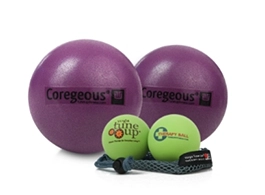

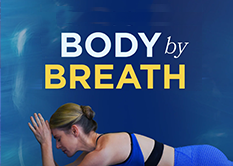



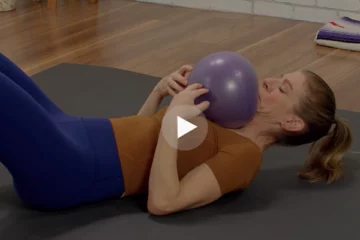
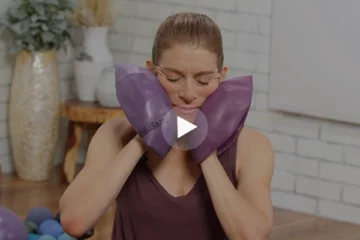


It always amazes me that emotional states can show up so clearly in the body. (Re)Learning to read the body’s cues and signals is such an important part of healing and recovery.
It’s not often that people truly unveil – and Sebastian Junger did. I’m awed by his ability to be vulnerable and take off the carapace of armour in this interview. That would have been beautiful enough but then there was a gorgeous nugget in every paragraph! This one [“Then I realized that as I got older, the radical revolutionary act is to be clear-minded.”] just made me want to leap up and say YEAH! It is a revolutionary act to see beyond the facades and sell schticks.
“So to me there’s this incredible irony and something to be learned…it’s possible that which makes us feel the most defended actually makes us the least safe.”
“I think people realize that at different points in their life. I didn’t realize it until my 50s: Impressing people is not a path to closeness, it’s the opposite, but it takes a long time to figure that out. What I always had was this incredible reservoir of athletic strength and when I lost that… I finally sort of joined the human race.”
As someone recovering from PTSD after a cascade of life altering events and experiencing “flutters” in my chest when I get upset, I resonated with Junger’s story. I was profoundly changed. I too used exercise as a way to manage emotions. I appreciate Ariel’s capacity to tune into his emotional experiences and Sebastian sharing how he relates to himself and others.
I know someone who has atrial fibrillation but never knew what they were going through until I read this article.
Junger’s mentality at the time of this interview is fantastic. In the near future people in my life will have to deal with the despair of loss, and while I don’t expect they will discover such a strong mentality right away or possibly ever, I think the perspective in this article will help me be more supportive of them.
I also enjoyed the last part of the conversation where he touches on the ability to decipher his heartbeat, a continuous miracle from the creator of the world at every moment and appreciate how it works so well
Excellent article. Astute quote: “it’s possible that which makes us feel the most defended actually makes us the least safe.” I work in cardiac rehab and definitely see the parallel between emotional struggle and heart health. Just teaching people to notice their breath coming in and going out is a remarkable process of healing – and I can see the change right in front of me. More important is that the create it for themselves and can feel it. Thanks again for this post.
Fascinating subject and Sebastian’s life story illustrates it excellently. It’s obvious that the emotional-physical body connection affects our health for both good and bad. Thanks for sharing!
I intend to share this article. Quite curious to consider that heartache (a broken heart) could play such a significant role in a healthy (or unhealthy) heart. What comes first the chicken or the egg?
I read Sebastian Junger’s “Tribe: On Homecoming and Belonging” and truly love his insights. I especially appreciate how he covers the questions of safety, identity and belonging. These are precursors to optimal physical and mental health. Thank you so much for sharing!
What a beautiful story and glimpse into his life. Being a body worker, it’s clear to me that emotions do affect our bodies and that it is so important to acknowledge and accept them in a healthy way so we can be healthier versions of ourselves. Thanks for sharing this!
I see the possibility of answering “yes” to this article’s title in question. If external stressors on the skeletal muscles for prolonged periods of time can cause strain, imbalances, dysfunctions, and injury then why couldn’t emotional stressors negatively affect the cardiac muscle? It very well can, depending on factors.
From this article I can glimpse the connections between the moving centrum, emotional centrum, and the thinking centrum. They seem to be different facets of a unified system. Thinking of the Junger’s heart problems as separate from his physical dysfunctions would only further exacerbate his problem and the unconscious approach he may have taken to find himself where he currently is. The key seems to be to unify and integrate, not to separate, divide and close off.
The author’s expertise in gleaning useful data from Junger’s past helped to identify the possible factors that contributed to his current condition that requires the assessor to see more holistically-or rather wholistically-in order to reconcile what is at odd’s within Junger’s system. Uncovering the why and when can resolve the question of how to aid Junger in recovering in the best way he can to optimize his embodied experience of life.
A brother, even if he never shot a round.
It’s very clear how our emotions can affect our body, now a days people need to become more aware of the physical reactionthe emotion they are feeling at a especific moment is causing in their bodies, this could create a more conscious and present population around the whole world because by being aware of our internal feelings and sensations, people can become more responsable of their actions towards others and become more empathic, instead of blaming others for anything that could happen in their lives.
This article caught my eye because I am a Junger fan. The story of his personal journey with his heart and the process both physical and spiritual are very insightful.
We hear more and more about the links between emotions and physical problems, a very interesting interview.
Wow! There is so much information and collected wisdom in this interview.
” ‘…it’s possible that which makes us feel the most defended actually makes us the least safe.’ ”
This is so profound! And true in so many different circumstances. It can take people a very long time (and sometimes never) to see that self defense mechanisms can be self destructive, even when we think of them as comforting.
great interview! I appreciated that quote about balancing the full realization of the heartbeat and the anxiety of its fragility.
I have seen in my life and career that attachment of health and a persons emotional state. I have seen perfectly healthy individuals become ill and age 10 years in 3 months. The importance of giving self care to your body is crucial but one most also give care to the soul.
“people think they have to be extraordinary to deserve ordinary things”… that really resonated… so much of social media culture makes us think others have “perfect” lives, meals, homes, craft projects, etc…. hard to remember the sacred in the ordinary, and that we are all ‘good enough’ just as we are!
thanks for this article Ariel. I read it last week and bought Junger’s book Tribe right away. What a great read.
There are so many great points brought up throughout the article. Inspiring amount of openness in how information was shared. If we truly are looking at our health in a holistic lens, then of course emotional well being will affect bodily health but it isn’t until we listen to Sebastians story that we begin to see the concrete connections between mind and body. The heart becoming overactive because of the stress of sports at a young age also calls to question the appropriateness and consideration of why we move and how we move our bodies and the long term overall benefits/consequences of those movements/actions.
It’s amazing how nearly all physical ailments have an attachment and correlation to emotional/mental pain or trauma. We often try to treat just the physical, and forget how important it is to find the root cause and heal it from its depths. The mind-body-emotion connection is so strong, and if we fail to address all sides of the dis-ease, healing it will usually only be temporary. Thank you for touching on using a holistic approach to healing, it is so important!!
What an inspiring article. The mind-body connection is so amazing. Thank you for sharing.
Thank you for this! It has been a real eye opener for me and will lead to some real changes in my life. I am tempted to show it to my GP the next time I visit but am afraid she might well write it off as hogwash and prescribe another pill. Instead, I am going to enroll in yoga and forget about red wine.
this was a moving piece. i do believe that a broken heart can breakdown our hearts and our bodies. i believe this is called depression – and masked depression if one isn’t aware that these life’s happenings are affecting the body especially for athletes like us who are used to pushing our bodies to perform and get the good feelings from those accomplishments.
I’ve witnessed this mind body connection multiple times as a counselor and as a pa in medicine, in addition to experiencing it personally. Thank you for bringing it to the fore of our consciousness.
Inspiring piece “The radical revolutionary act is to be clear minded” awesome!
Knowing a couple people who recently started Afib, it gives me insight into how it can be triggered. I am passing the article on. Thank you.
Amazing! As both a trauma-informed yoga teacher and historian of war journalism (and huge Sebastian Junger fan), I’m fascinated by the ways people find to self-regulate when under great stress. A teenager becomes an athlete and learns to track his heart rate, a heartbroken journalist drinks. Yoga teachers have a great opportunity to teach healthy and direct forms of self-regulation, and to help people draw these connections between their emotional and physical lives. Thank you for such a candid and moving interview!